
Danny Boyle: 9 Ways to Contact Them (Phone Number, Email, House address, Social media profiles)
Danny Boyle: Ways to Contact or Text Danny Boyle (Phone Number, Email, Fanmail address, Social profiles) in 2022- Are you looking for Danny Boyle 2022 Contact details like his Phone number, Email Id, WhatsApp number, or Social media account information that you have reached on the perfect page.
We are attempting to answer many of the most frequently asked questions by Danny Boyle fans, and a large percentage of them are related to contact information. There is a lot of information about Danny Boyle’s Fan Mail Address, Autograph Request Address, Phone Number, Email Address, and more details that you can learn about in the following sections of this article.
Danny Boyle Biography and Career:
Also Checkout: How to Contact Susan Boyle: Phone Number, Email Address, Fan Mail Address, and Autograph Request Address
The 20th of October, 1956 saw Danny Boyle being born in Manchester, England. He went on to become a well-known British director and screenwriter whose works were defined by striking visual imagery and a joyful mood. Boyle was born in Manchester. Boyle began his professional career in the theatre, and he went on to assume roles as artistic director of the Royal Court Theatrical Upstairs (1982–85) and deputy director of the Royal Court Theatre (1985–87) before moving on to other duties in the theatre industry.
It was the 1987 television movie Scout that served as his introduction to the world of feature picture filmmaking. In addition to directing and writing the film, he did both. After directing a number of other television programmes, he made his debut as a feature film director with the film Shallow Grave, which was released in 2008. (1994). John Hodge, who later collaborated with Boyle on a number of other projects, was the author of the criminal thriller that Boyle directed. The film’s stunning visual style, which has been a signature of Boyle’s work since the film’s release, was one of the most memorable aspects of the movie.

The filmmaker saw a major turning point in his career with the release of the picture Trainspotting in 1996. It quickly became a phenomenon all over the globe and is now one of the highest-grossing pictures ever produced in the United Kingdom. The film is known for its darkly comedic portrayal of heroin addicts. Hodge penned the screenplay for it and also served as the film’s director. It stars Ewan McGregor, who was most recently seen in the movie Shallow Grave. It wasn’t until 1997 that MacGregor and Boyle worked together again, this time on the set of the romantic comedy A Life Less Ordinary.
This was not up to the high standards established by their prior collaborations but was still interesting to see anyway. After that, Boyle directed his first big Hollywood picture, The Beach (2000), which was based on Alex Garland’s classic book about a seemingly idyllic society on an isolated Thai island and featured a script written by Hodge. The film was a collaboration between Boyle and Hodge. It was Boyle’s debut in a significant role in a Hollywood production.
Boyle’s first big Hollywood production was called “The Beach,” and it was both critically acclaimed and financially profitable. Despite having Leonardo DiCaprio in the lead role, the movie was met with lackluster reviews and was not successful in luring a significant number of people. The post-apocalyptic zombie thriller directed by Danny Boyle and released in 2002 was an unexpected smash not just with critics but also with moviegoers. His second chance to show how adaptable he is came in the form of a role in the film Millions (2004), which is a touching story of a motherless little boy who comes into possession of the proceeds of a bank heist.
Boyle made his directorial debut with the science fiction thriller Sunshine (2007). Following that, he went on to make Slumdog Millionaire (2008), a film about an unorthodox love story that was set in India and gained critical praise. In spite of the fact that many people were initially opposed to the idea of seeing the movie, which features graphic depictions of child abuse and torture as well as significant portions of conversation in Hindi with English subtitles, the movie was a huge critical and financial success. This is despite the fact that many people were initially skeptical about whether or not they would watch the movie.
As a result, Boyle was awarded the Academy Award for best director, and Slumdog Millionaire ended up winning a total of seven Academy Awards, including the award for Best Picture. After that, Boyle directed and co-wrote the film 127 Hours (2010), which was shown in theatres in the same year it was released. The screenplay for the movie, which was written by Simon Beauvoir, who also penned Slumdog Millionaire, was well received by critics. The battle of a hiker to live when his arm gets caught in an unstable rock serves as the primary focus of the play, which was conceived as a response to a real story.

127 Hours was recognised with a total of six nominations for Academy Awards, one of which was for the award for the adapted screenplay that was considered to be the finest. Trance is the continuation of the first Trance. This tells the story of the life and career of the eponymous Apple cofounder via the events that occurred behind the scenes during three significant product launches for Apple. Documentary film Steve Jobs (2015), directed by Steven Spielberg and released in the year 2015, is the title of this film. After that, Boyle became the director of T2: Trainspotting (2017),
This was a much-anticipated follow-up to the critically acclaimed film with the same name The drama, which was once again written by Hodge and in which MacGregor reprises his role as Renton, follows the four Scottish friends 20 years after their exploits as adolescents. It focuses on how they deal with the repercussions of their risky behaviour and was written with MacGregor in the role of Renton. In 2018, the director who was responsible for a number of episodes of Trust, a television anthology series about the family of oil magnate J. Paul Getty, was involved in the production of many episodes of the programme.
After a hiatus of seven years, Boyle is finally making his way back to the big screen with the release of the comedy Yesterday (2019). In this film, Boyle imagines a world in which the Beatles did not exist at all. In 2011, Boyle made his theatrical debut at the Royal National Theatre in a production of Frankenstein (1818), which was written by Mary Shelley. It had been his first public appearance ever since. The actors Jonny Lee Miller and Benedict Cumberbatch took turns playing the parts of Victor Frankenstein and the Monster throughout the course of the performance, despite the fact that the sequence in which they portrayed the characters varied from night to night.
Boyle, in his role as artistic director of the opening ceremony for the London 2012 Olympic Games, oversaw the production of a massive spectacle that paid tribute to both the past and the present of the nation in terms of its social and cultural life. Next, Boyle filmed his first big-budget Hollywood picture, The Beach (2000), which was based on a famous book written by Alex Garland about a supposedly utopian village located on a secluded Thai island. The script for the film was written by Hodge, and it was directed by Boyle. Even though it starred Leonardo DiCaprio, the film was met with negative reviews and was unable to attract an audience.
Boyle scored an unexpected success with the post-apocalyptic zombie movie 28 Days Later in the year 2002. He continued to demonstrate his versatility with the film Millions (2004), a story about a motherless boy who finds the proceeds of a bank robbery. It was a very heartwarming story. Boyle’s previous film, the science fiction thriller Slumdog Millionaire (2007), was followed by the unorthodox love story Slumdog Millionaire (2008), which was set in India. In spite of early skepticism regarding the movie—many people questioned whether audiences would watch a movie that featured extreme child abuse and torture scenes and that featured extensive dialogue in Hindi with English subtitles—the movie was a success.
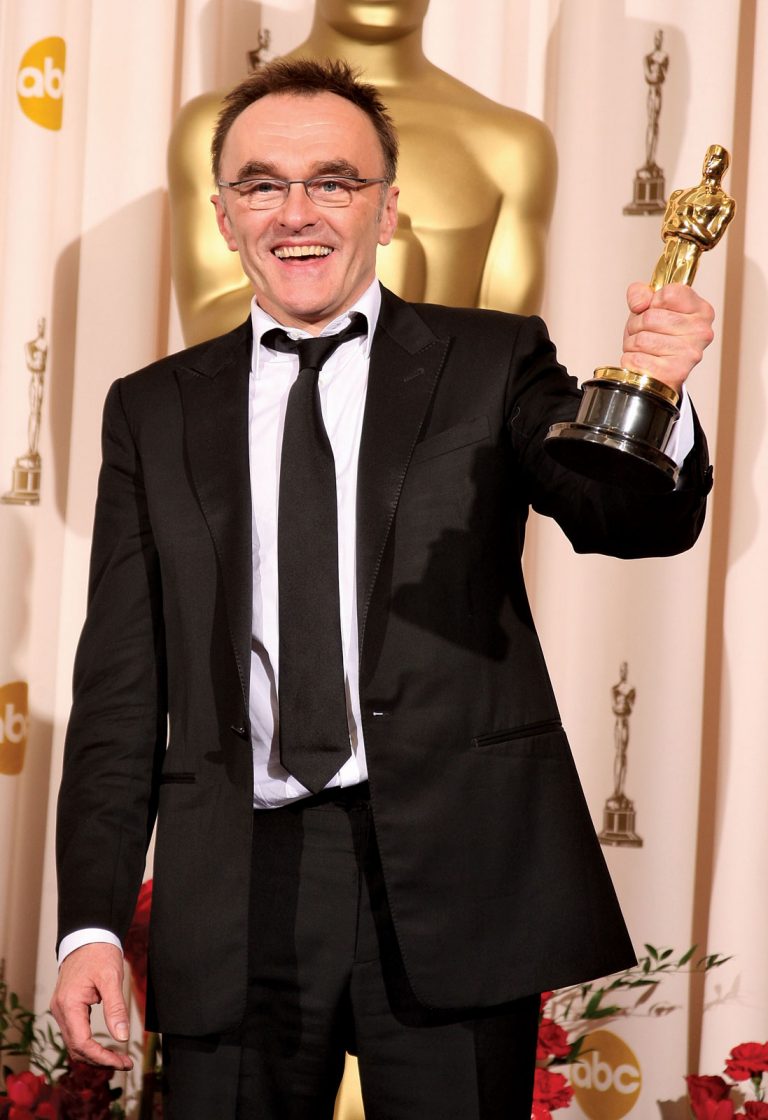
It was a big success both in terms of critical acclaim and financial gain. Boyle was awarded the Academy Award for best director, and Slumdog Millionaire was awarded a total of eight Oscars, including the award for best picture. Boyle’s second picture, 127 Hours (2010), which he cowrote with Slumdog Millionaire screenwriter Simon Beauvoir, helped him continue to garner critical recognition for his work. The drama, which was based on a real tale, revolves on a hiker’s fight to live when his arm gets stuck by a falling rock. The plot was based on an actual event. The film 127 Hours was nominated for six Academy Awards, and it ended up winning one of them for best adapted screenplay.
After that, in 2013, came Trance, a stylized shape-shifting thriller in which an art thief submits himself to hypnosis in order to assist him in recovering a painting that he has lost. The film Steve Jobs (2015) recounts the life and career of the eponymous Apple cofounder by following the behind-the-scenes action during the launch of three significant Apple products. The much-anticipated sequel to the first film, titled T2 Trainspotting (2017), was directed by Boyle after that. The drama, which was also written by Hodge and in which MacGregor reprises his role as Renton, was also written by Hodge.
checks up on the Scottish friends after twenty years to see how they are doing as they face the fallout from their reckless youth. In 2018, Boyle served as the director of numerous episodes of the anthology television series Trust, which follows the members of the oil magnate J. Paul Getty’s family. Boyle made his comedic comeback to the film industry with the release of Yesterday (2019), a film that imagines an alternative reality in which the Beatles did not exist. In 2011, Boyle made his comeback to the stage with an adaptation of Mary Shelley’s Frankenstein (1818), which was performed at the Royal National Theatre.
Each night of the event, actors Jonny Lee Miller and Benedict Cumberbatch took turns playing the parts of Victor Frankenstein and the Monster. Miller and Cumberbatch were both featured in the production. Boyle, in his role as artistic director of the opening ceremony for the Olympic Games held in London in 2012, conceived of an opulent spectacle that paid respect to the social and cultural past of Great Britain. After completing his education, he immediately started his career in the theatre. He joined the Joint Stock Theater Company, which later became the Royal Court Theater, and he directed five plays for the Royal Shakespeare Company over his career.
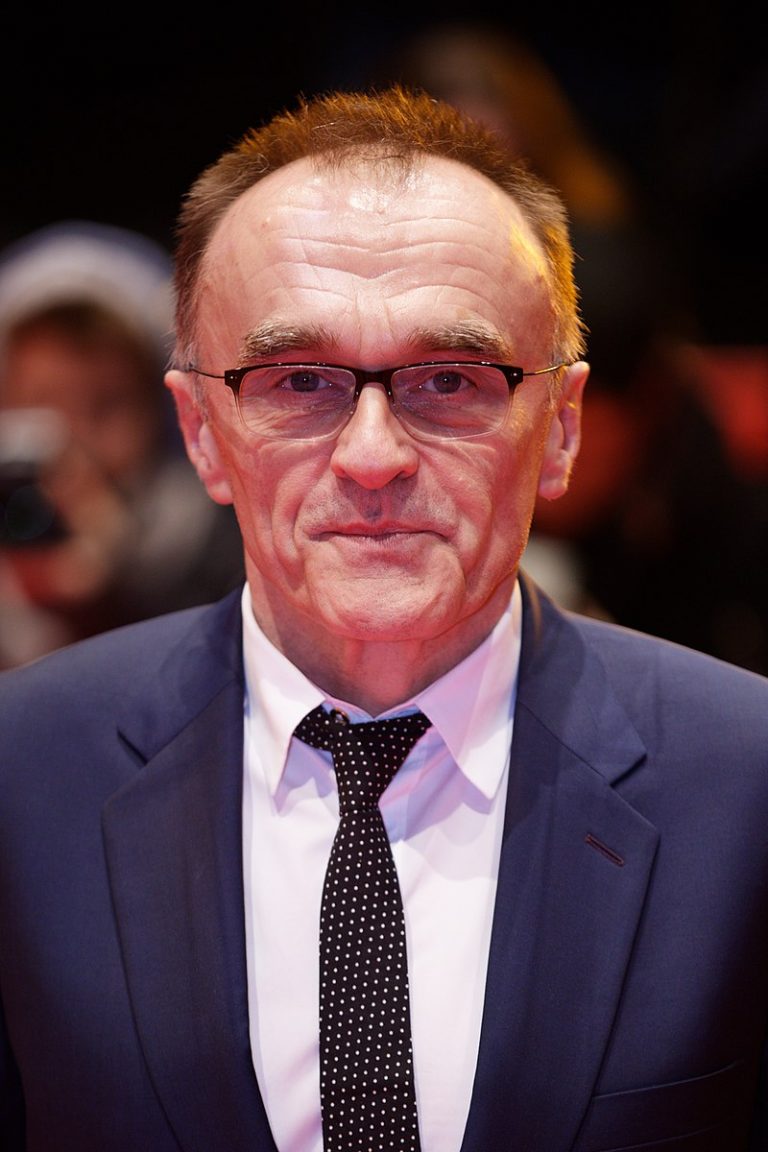
In the late 1980s, he began his career as a producer at BBC Northern Ireland. During his time there, he was responsible for producing a number of different TV movies, including the critically acclaimed and very contentious Alan Clarke film, Elephant. After that, he became a director for many episodes of several BBC television programmes, including Inspector Morse. 1995 saw the release of Boyle’s first feature film, Shallow Grave. The movie not only ended up being the most financially successful British picture of the year but also took home the award for Best British Film from the BAFTA. In addition to that, the London Film Critics’ Circle presented Boyle with their award for Best Newcomer.
Boyle’s first time working with screenwriter John Hodge, producer Andrew Macdonald, and actor Ewan McGregor, who he would later collaborate with again on Trainspotting, was for the film Shallow Grave. Boyle would go on to work with all three of them again on Trainspotting (1996). Because of the success of his first picture, the studio decided to give him a wider distribution for his second film, Trainspotting, which catapulted him to a celebrity on a global scale. In 1993, producer Andrew Macdonald read the book written by Irvine Welsh, which had previously been effectively adapted for the stage, and persuaded Boyle and Hodge to convert it into a movie a few months later. The novel had already been brilliantly adapted for the stage.
The three worked together over the years 1994 and 1995 to adapt the book for the big screen and gain finance for the project while Shallow Grave was still in production and being released. Boyle and Macdonald were so pleased with Ewan McGregor’s performance in Shallow Grave that they decided to cast him in the role of the main actor, Mark Renton. Macdonald was able to negotiate substantial budget increases for the film’s marketing and publicity with the distributors, Miramax and PolyGram Filmed Entertainment, despite the film’s comparatively low cost to produce.
Trainspotting was a massive commercial and critical success, becoming the highest-grossing British film of the year, earning widespread critical acclaim, a BAFTA for best-adapted screenplay (John Hodge), and a nomination for the Academy Award in addition to being the winner of the British Academy Film Award. The British Film Institute’s list of the 100 best British films of the 20th century currently places it at the tenth position overall. Boyle gained a worldwide reputation as a result of the success of Shallow Grave and Trainspotting, which enabled him to direct films with greater budgets for the remainder of his career. His subsequent film was an adaptation of Alex Garland’s book of the same name, titled The Beach (2000), which he directed. The Beach had a budget of 50 million United States dollars (in comparison, Trainspotting had a budget of 1.5 million British pounds), and it grossed 114 million United States dollars at the worldwide box office; yet, it was not well received by reviewers.
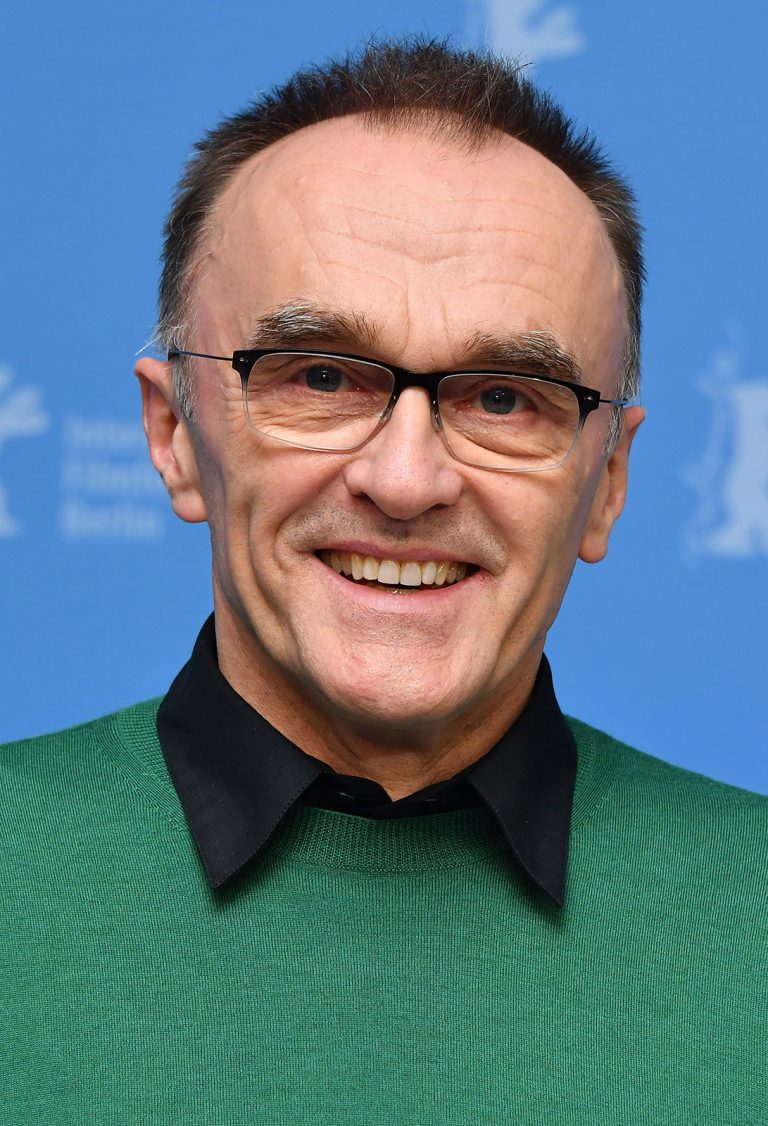
The star power of Leonardo DiCaprio, who plays the major role in the movie, has been credited with contributing significantly to the film’s financial success. Boyle went on to collaborate with author Alex Garland once again on his subsequent film, titled 28 Days Later (2002). This movie, which was a financial and critical triumph, is credited for revitalizing the zombie horror subgenre, and it was directed by Boyle. Boyle directed the films Millions (2004) and Sunshine (2007), both of which had a level of popularity that was somewhere in the middle. In addition, he was the producer of the sequel film 28 Weeks Later (2007), which followed the events in 28 Days Later. Slumdog Millionaire, which Boyle directed in 2008 and which became the most popular British film of the decade, won seven BAFTA awards, eight Oscars, and four Golden Globes, including the award for Best Director at each ceremony. Boyle also won the award for Best Director at each of these events. The movie has brought in $377 million all around the world.
Film reviewers in Britain and the United States had some negative things to say about the movie due to its presentation manner and the way it dealt with the subject matter. A large number of Indian politicians, scholars, and filmmakers felt that it presented a simplistic and westernized perspective on Indian slums, which led to widespread criticism of the film. The next film that Boyle directed was 127 Hours (2010), which was met with widespread critical acclaim, eight nominations for the BAFTA, and six nominations for the Academy Awards. After that, in 2013, he directed the movie Trance, which was a hit in its own right. In 2015, he directed the biopic Steve Jobs, for which Aaron Sorkin was responsible for writing the screenplay. The critical response to Steve Jobs was divided, with the most of the acclaim being focused on the acting. The most recent film that Boyle directed was the sequel to Trainspotting called T2 Trainspotting (2017).
Boyle has been recognised as one of the most influential Roman Catholics in the United Kingdom, and he was featured on an updated version of Sir Peter Blake’s Sgt. Pepper’s Lonely Hearts Club Band album cover that was released in 2012. This version was intended to highlight the most significant cultural icons from the artist’s lifetime. Boyle has cited the works of directors such as Martin Scorsese, John Woo, Francis Ford Coppola, and Stanley Kubrick as sources of influence.
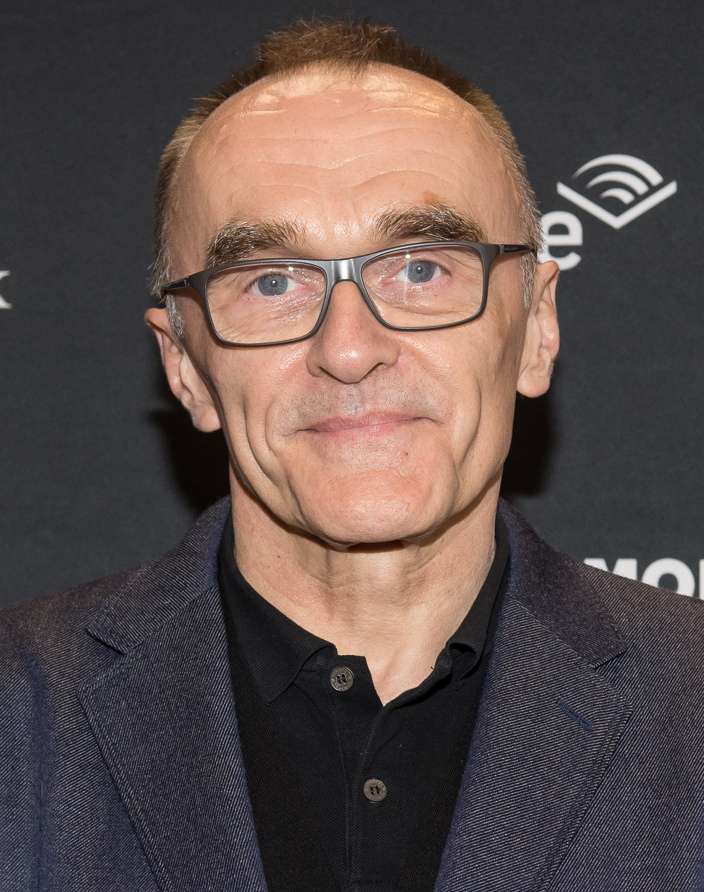
Autograph Request Address of Danny Boyle
Requesting a signature from Danny Boyle is becoming one of the most popular choices for fans who are hectic and locked in their daily normal routines. If you want Danny Boyle’s signature, you may write him an autograph request letter and mail it to his office address.
Autograph Request Address:
If you anticipate a speedy answer, include a self-addressed, sealed envelope. Include a photo of Danny Boyle in your autograph request letter if you want a signature on his photo. A response from a celebrity’s office usually takes a couple of weeks, so be patient.
Danny Boyle Profile-
- Full Name– Danny Boyle
- Birth Sign- Libra
- Date of Birth– 20 October 1956
- State and Country of Birth– Radcliffe, United Kingdom
- Age – 65 years (As 0f 2022)
- Parents– Father: Frank Boyle, Mother: Annie Boyle
- Cousins– NA
- Height– 1.82 m
- Occupation– Director
Danny Boyle Phone Number, Email, Contact Information, House Address, and Social Profiles:
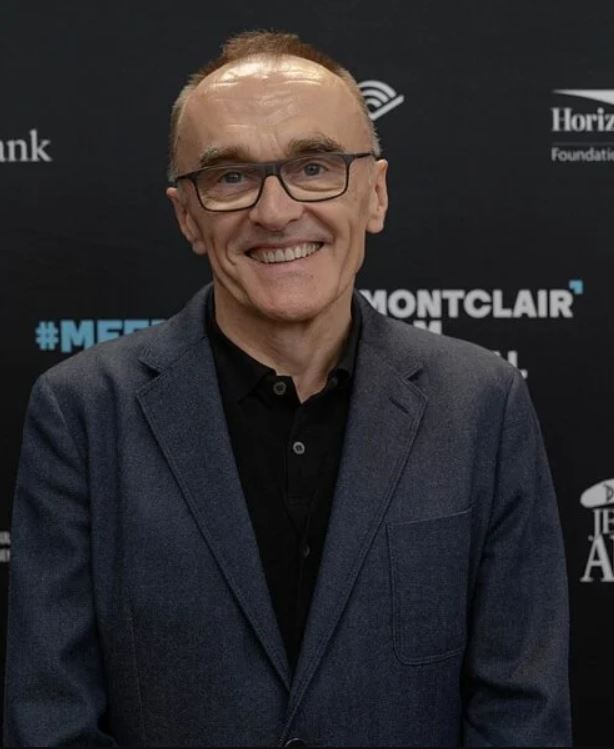
Ways to Contact Danny Boyle:
1. Facebook Page: https://www.facebook.com/public/Danny-Boyle
Danny Boyle has a Facebook account where he publishes his pictures and videos. The above-mentioned URL will take you to his profile. It has been verified, and we can certify that it is a 100% accurate profile of Danny Boyle. You may contact him on Fb, which you can find by clicking the link here.
2. YouTube Channel: https://www.youtube.com/channel/UCaWvXCJhiz9Wp2r3GC-vJkw
Danny Boyle has his own channel on youtube, where he uploaded his videos for his followers to watch. He has also earned a million subscribers and thousands of views. Anyone interested in seeing his uploads and videos may utilize the account URL provided above.
3. Instagram Profile: https://www.instagram.com/danny.boyle/
Danny Boyle even has an Instagram account, in which he has over a thousand followers and gets over 100k likes per posting. If you would like to view his most recent Instagram pics, click on the link above.
4. Twitter: https://twitter.com/officialdannybo
As of yet, Danny Boyle has gained a large number of followers on his Twitter account. Click on the link above if you’re willing to tweet it. The link above is the only way to get in touch with him on Twitter.
5. Phone number: NA
Danny Boyle’s many phone numbers have been released on Google and the internet, but none of them truly function. However, we’ll let you know as soon as we’ve located an exact number.
6. Fan Mail Address:
Danny Boyle William Morris Endeavor Entertainment 9601 Wilshire Blvd. 3rd Floor Beverly Hills, CA 90210-5213 USA
7. Email id: NA
8. Website URL: NA
Also Checkout: How to Contact Susan Boyle: Phone Number, Email Address, Fan Mail Address, and Autograph Request Address


